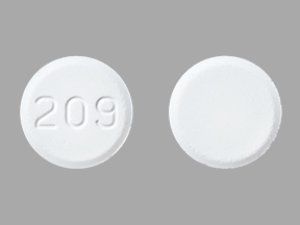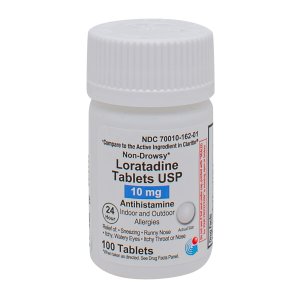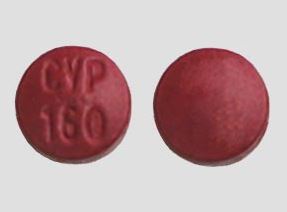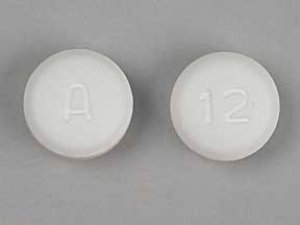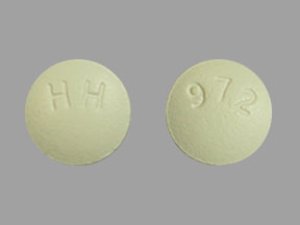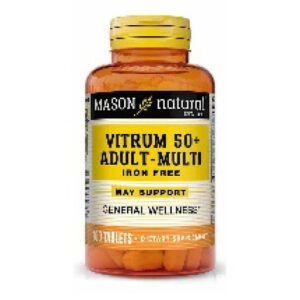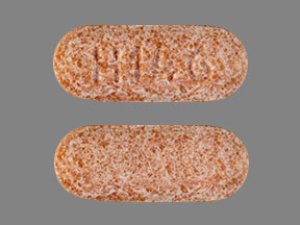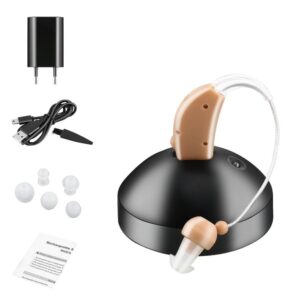Delivery Method: VIA UPS Reference #: 320-25-07 Product: Drugs Recipient:
Recipient Name
Mr. Yucel Teker
Recipient Title
General Manager/Chairman of the Board
MedOffice Saglik Endustri Anonim Sirketi
Ic Kapi No. 1, No. 9-1 Yazibasi Mahallesi, Kuscu Caddesi
35880 Torbali/İzmir
Turkey
Issuing Office: Center for Drug Evaluation and Research (CDER)
United States
October 23, 2024
Warning Letter 320-25-07
Dear Mr. Teker:
The U.S. Food and Drug Administration (FDA) inspected your drug manufacturing facility, MedOffice Saglik Endustri Anonim Sirketi, FEI 3019167311, at Ic Kapi No.1, No 9-1 Yazibasi Mahallesi, Kuscu Caddesi, Torbali, Izmir 35880, Turkey, from May 6 to 10, 2024.
This warning letter summarizes significant violations of Current Good Manufacturing Practice (CGMP) regulations for finished pharmaceuticals. See Title 21 Code of Federal Regulations (CFR), parts 210 and 211 (21 CFR parts 210 and 211).
Because your methods, facilities, or controls for manufacturing, processing, packing, or holding do not conform to CGMP, your drug products are adulterated within the meaning of section 501(a)(2)(B) of the Federal Food, Drug, and Cosmetic Act (FD&C Act), 21 U.S.C. 351(a)(2)(B).
We reviewed your May 15, 2024 response to our Form FDA 483 in detail and acknowledge receipt of your subsequent correspondence. Your response is inadequate because you failed to provide supportive documentation sufficient for evaluation or adequate evidence of corrective actions taken to bring your operations into compliance with CGMP.
During our inspection, our investigators observed specific violations including, but not limited to, the following.
1. Your firm failed to have, for each batch of drug product, appropriate laboratory determination of satisfactory conformance to final specifications for the drug product, including the identity and strength of each active ingredient, prior to release, and for each batch of drug product required to be free of objectionable microorganisms, appropriate laboratory testing, as necessary (21 CFR 211.165(a) and 211.165(b)).
Your firm failed to perform appropriate testing on your over-the-counter (OTC) drug products, including the identity and strength of each active ingredient, prior to release and distribution into the U.S. market. This includes your (b)(4) cream, (b)(4), and (b)(4) drug products.
You also failed to ensure adequate microbiological testing for each batch of your drug products prior to release. For example, you did not test your drug products or have sufficient specifications to ensure they are free of objectionable organisms. This includes your (b)(4) drug products which were associated with multiple complaints for microbial contamination.
Testing is essential to ensure that the drug products you manufacture conform to all predetermined quality attributes appropriate for their intended use. Because you lacked adequate testing of each batch of your drug products, you do not know whether they conform to all appropriate finished product specifications and are suitable for release to consumers.
In response to this letter, provide a list of chemical and microbial specifications, including test methods, used to analyze each batch of your drug products before a batch disposition decision.
o An action plan and timelines for conducting full chemical and microbiological testing of retain samples to determine the quality of all batches of drug product distributed to the United States that are within expiry as of the date of this letter.
o A summary of all results obtained from testing retain samples from each batch. If such testing reveals substandard quality drug products, take rapid corrective actions, such as notifying customers and product recalls.
2. Your firm failed to conduct at least one test to verify the identity of each component of a drug product. Your firm also failed to validate and establish the reliability of your component supplier’s test analyses at appropriate intervals (21 CFR 211.84(d)(1) and 211.84(d)(2)).
Your firm failed to adequately test incoming components, including your active pharmaceutical ingredients (APIs), for identity before using the components to manufacture your drug products. Additionally, your firm released API and other components for use in drug product manufacturing based on your supplier’s certificate of analysis (COA) without establishing the reliability of your incoming component suppliers’ test analyses at appropriate intervals.
Without adequate testing, you do not have scientific evidence that the components conform to appropriate specifications prior to use in the manufacture of your drug products. As a manufacturer, you have a responsibility to sample, test, and examine drug components before use in production to assure adequate quality.
In response to this letter, provide:
- A comprehensive, independent review of your material system to determine whether all suppliers of components, containers, and closures, are each qualified and the materials are assigned appropriate expiration or retest dates. The review should also determine whether incoming material controls are adequate to prevent use of unsuitable components, containers, and closures.
- The chemical and microbiological quality control specifications you use to test and release each incoming batch of components for use in manufacturing.
- A description of how you will test each component lot for conformity with all appropriate specifications for identity, strength, quality, and purity. If you intend to accept any results from your suppliers’ COA instead of testing each component lot for strength, quality, and purity, specify how you will robustly establish the reliability of your supplier’s results through initial validation as well as periodic re-validation. In addition, include a commitment to always conduct at least one specific identity test for each incoming component lot.
- A summary of results obtained from testing all components to evaluate the reliability of the COA from each component manufacturer. Include your standard operating procedure (SOP) that describes this COA validation program.
- A summary of your program for qualifying and overseeing contract facilities that test the drug products you manufacture.
3. Your firm failed to establish adequate written procedures for production and process control designed to assure that the drug products you manufacture have the identity, strength, quality, and purity they purport or are represented to possess, and your firm’s quality control unit did not review and approve those procedures, including any changes (21 CFR 211.100(a)).
Your firm failed to adequately validate the manufacturing processes and qualify the equipment used to manufacture your drug products. Additionally, you failed to demonstrate that your cleaning procedure is sufficient to appropriately clean each type of equipment, including filling equipment which is shared for multiple products, including non-drug products, in a reproducible and effective manner.
Process validation evaluates the soundness of design and state of control of a process throughout its lifecycle. Each significant stage of a manufacturing process must be designed appropriately and ensure the quality of raw material inputs, in-process materials, and finished drugs. Process qualification studies determine whether an initial state of control has been established. Successful process qualification studies are necessary before commercial distribution. Thereafter, ongoing vigilant oversight of process performance and product quality is necessary to ensure that you maintain a stable manufacturing operation throughout the product lifecycle.
See FDA’s guidance document Process Validation: General Principles and Practices for general principles and approaches that FDA considers appropriate elements of process validation, at https://www.fda.gov/media/71021/download.
In response to this letter, provide:
- A detailed summary of your validation program for ensuring a state of control throughout the product lifecycle, along with associated procedures. Describe your program for process performance qualification (PPQ), and ongoing monitoring of both intra-batch and inter-batch variation to ensure a continuing state of control.
- A timeline for performing appropriate PPQ for each of your marketed drug products.
- Your process performance protocol(s), and written procedures for qualification of your equipment and facility.
- A detailed program for designing, validating, maintaining, controlling, and monitoring each of your manufacturing processes that includes vigilant monitoring of intra-batch and interbatch variation to ensure an ongoing state of control. Also, include your program for qualification of your equipment and facility.
- Appropriate improvements to your cleaning validation program, with special emphasis on incorporating conditions identified as worst-case in your drug manufacturing operation. This should include, but not be limited to, identification and evaluation of all worst-case:
o Drugs with higher toxicities
o Drugs with higher drug potencies
o Drugs of lower solubility in their cleaning solvents
o Drugs with characteristics that make them difficult to clean
o Swabbing locations for areas that are most difficult to clean
o Maximum hold times before cleaning
- In addition, describe the steps that must be taken in your change management system before introduction of new manufacturing equipment or a new product.
- A summary of updated SOPs that ensure an appropriate program is in place for verification and validation of cleaning procedures for products, processes, and equipment.
CGMP Consultant Recommended
Based upon the nature of the violations we identified at your firm, you should engage a consultant qualified as set forth in 21 CFR 211.34 to evaluate your operations and to assist your firm in meeting CGMP requirements. The qualified consultant should also perform a comprehensive six-system audit of your entire operation for CGMP compliance and evaluate the completion and efficacy of your corrective action and preventive actions before you pursue resolution of your firm’s compliance status with FDA.
Your use of a consultant does not relieve your firm’s obligation to comply with CGMP. Your firm’s executive management remains responsible for resolving all deficiencies and systemic flaws to ensure ongoing CGMP compliance. See FDA’s guidance document Quality Systems Approach to Pharmaceutical CGMP Regulations for help implementing quality systems and risk management approaches to meet the requirements of CGMP regulations 21 CFR, parts 210 and 211 at https://www.fda.gov/media/71023/download .
Conclusion
The violations cited in this letter are not intended to be an all-inclusive list of violations that exist at your facility. You are responsible for investigating and determining the causes of any violations and for preventing their recurrence or the occurrence of other violations.
Correct any violations promptly. Failure to promptly and adequately address this matter may result in regulatory or legal action without further notice including, without limitation, seizure and injunction. Unresolved violations may also prevent other Federal agencies from awarding contracts.
FDA placed your firm on Import Alert 66-40 on October 4, 2024.
Correct any violations promptly. FDA may withhold approval of new applications or supplements listing your firm as a drug manufacturer until any violations are completely addressed and we confirm your compliance with CGMP. We may re-inspect to verify that you have completed corrective actions to any violations.
Failure to address any violations may also result in the FDA continuing to refuse admission of articles manufactured at MedOffice Saglik Endustri Anonim Sirketi, at Ic Kapi No.1, No 9-1 Yazibasi Mahallesi, Kuscu Caddesi, Torbali, Izmir 35880, Turkey into the United States under section 801(a)(3) of the FD&C Act, 21 U.S.C. 381(a)(3). Articles under this authority that appear to be adulterated may be detained or refused admission, in that the methods and controls used in their manufacture do not appear to conform to CGMP within the meaning of section 501(a)(2)(B) of the FD&C Act, 21 U.S.C. 351(a)(2)(B).
This letter notifies you of our findings and provides you an opportunity to address the above deficiencies. After you receive this letter, respond to this office in writing within 15 working days. Specify what you have done to address any violations and to prevent their recurrence. In response to this letter, you may provide additional information for our consideration as we continue to assess your activities and practices. If you cannot complete corrective actions within 15 working days, state your reasons for delay and your schedule for completion.
Send your electronic reply to CDER-OC-OMQ-Communications@fda.hhs.gov. Identify your response with FEI 3019167311 and ATTN: Rory Geyer.
Sincerely,
/S/
Francis Godwin
Director
Office of Manufacturing Quality
Office of Compliance
Center for Drug Evaluation and Research
Cc:
Registered U.S. Agent
Ms. Fulya Turkmenoglu
Email: info@jaiyou.com


